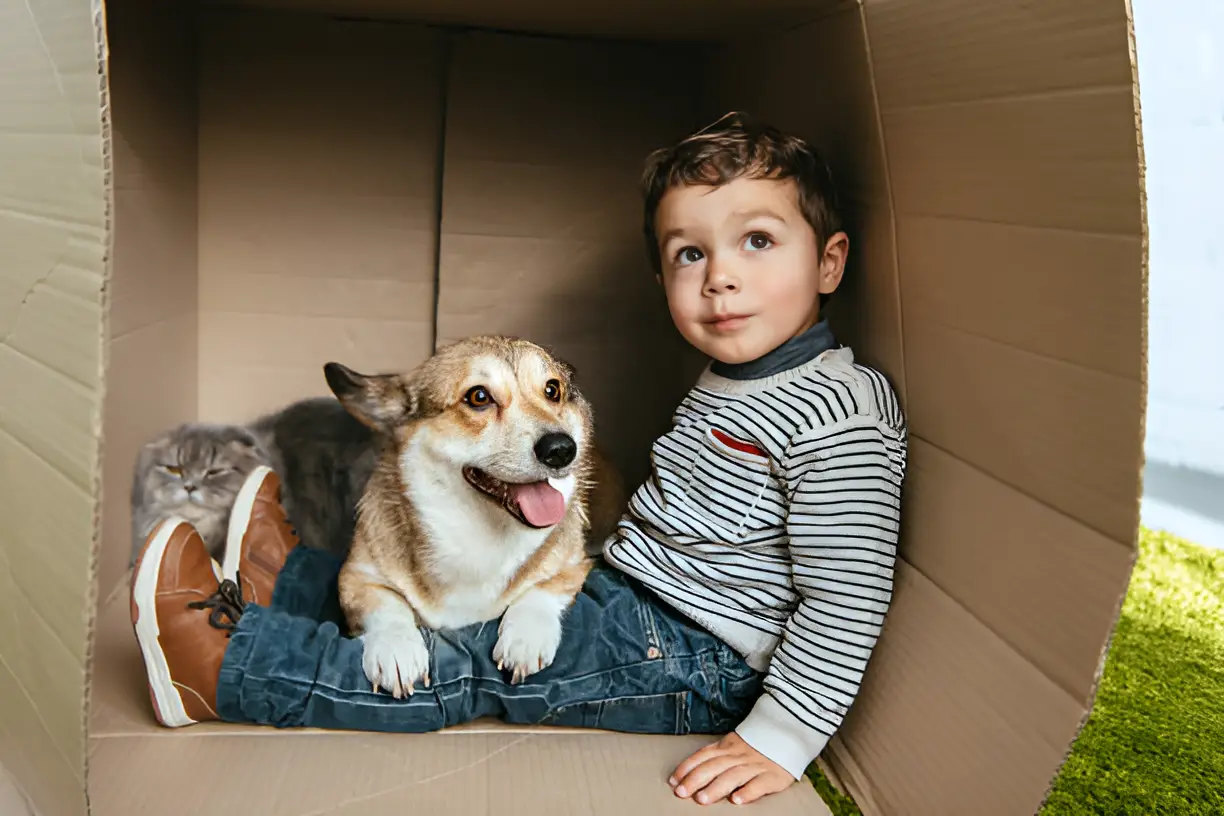Yes, dogs can exhibit behaviors that resemble jealousy when a new child enters the household, often due to changes in attention, routine, and perceived competition for resources. Dogs are highly social animals that form strong bonds with their human families. When a new child is introduced into the home, it can disrupt the established dynamics, leading to behaviors that may be interpreted as jealousy. This comprehensive guide will explore the reasons behind such behaviors, how to recognize them, and strategies to ensure a harmonious relationship between your dog and your child.
Understanding Jealousy in Dogs
Jealousy in dogs is not the same as human jealousy, but it can manifest in similar ways. Here are some key points to understand this behavior:
1. Resource Guarding: Dogs may see a new child as a competitor for their owner’s attention, food, toys, or sleeping space. This can lead to possessive behaviors.
2. Attention-Seeking: Dogs thrive on attention from their owners. When a child diverts this attention, dogs may engage in behaviors designed to regain their owner’s focus.
3. Changes in Routine: The arrival of a child often brings significant changes to a household’s routine. Dogs, who are creatures of habit, may feel stressed or anxious due to these disruptions.
Signs of Jealousy in Dogs
Recognizing the signs of jealousy in dogs is crucial for addressing the behavior effectively. Here are some common indicators:
1. Blocking Behavior: Your dog may try to physically come between you and the child, positioning themselves to receive attention.
2. Aggression: This can include growling, barking, lunging, or snapping at the child or other family members.
3. Attention-Seeking Actions: Excessive licking, whining, or destructive behaviors like chewing or digging can be signs of jealousy.
4. Changes in Body Language: Look for signs of anxiety or insecurity, such as a stiff posture, lowered tail, or flattened ears.
5. Clinginess: Your dog may become unusually attached to you, following you around more than usual and frequently seeking physical contact.
Causes of Jealousy in Dogs
Several factors can contribute to jealousy-like behaviors in dogs. Understanding these causes can help you address the issue more effectively:
- New Family Member: The introduction of a new baby or child can disrupt the dog’s perceived place in the family hierarchy.
- Changes in Attention: Dogs may feel neglected if they perceive that they are receiving less attention than before.
- Competition for Resources: Dogs may see the child as a threat to their access to food, toys, or sleeping areas.
- Lack of Socialization: Dogs that have not been properly socialized with children may feel uncomfortable or threatened by their presence.
Strategies to Address Jealousy in Dogs
Addressing jealousy in dogs involves creating a balanced environment where both the dog and the child feel secure and valued. Here are some strategies to consider:
1. Maintain Routine: Try to keep your dog’s routine as consistent as possible. Regular feeding, walking, and playtimes can help reduce stress and anxiety.
2. Positive Reinforcement: Use positive reinforcement to reward your dog for calm and appropriate behavior around the child. Treats, praise, and affection can reinforce good behavior.
3. Gradual Introduction: Introduce your dog to the new child gradually. Allow them to sniff and observe the child from a distance before allowing closer interactions.
4. Supervised Interactions: Always supervise interactions between your dog and the child to ensure safety and prevent any negative incidents.
5. Provide Attention: Ensure your dog still receives plenty of attention and affection. Set aside time each day to spend one-on-one with your dog.
6. Create Safe Spaces: Provide your dog with a safe space where they can retreat and relax without being disturbed by the child.
Training and Socialization
Proper training and socialization are crucial for preventing and addressing jealousy in dogs. Here are some tips:
- Obedience Training: Basic obedience training can help establish boundaries and improve your dog’s behavior. Commands like “sit,” “stay,” and “leave it” can be particularly useful.
- Socialization: Expose your dog to children and other animals from a young age. Positive experiences with children can help reduce fear and anxiety.
- Professional Help: If your dog’s jealousy leads to aggressive behavior, consider seeking help from a professional dog trainer or behaviorist.
Conclusion
In conclusion, dogs can exhibit behaviors that resemble jealousy when a new child enters the household, often due to changes in attention, routine, and perceived competition for resources. By understanding the causes of these behaviors and implementing strategies to address them, you can ensure a harmonious relationship between your dog and your child. Remember, patience and consistency are key to successfully managing jealousy in dogs.
The photo featured below the post headline is Credit: LightFieldStudios/istockphoto
I hope you find this post helpful and informative. If Yes’ feel free to share it with your friends!
Frequently Asked Questions
Can dogs be jealous of a child?
Yes, dogs can exhibit behaviors that resemble jealousy when a new child enters the household.
What are the signs of jealousy in dogs?
Signs include blocking behavior, aggression, attention-seeking actions, changes in body language, and clinginess.
How can I address jealousy in my dog?
Maintain routine, use positive reinforcement, introduce the child gradually, supervise interactions, provide attention, and create safe spaces.
Why do dogs get jealous of children?
Dogs may feel neglected, see the child as a competitor for resources, or feel uncomfortable due to lack of socialization.
Should I seek professional help for my dog’s jealousy?
If your dog’s jealousy leads to aggressive behavior, consider seeking help from a professional dog trainer or behaviorist.

